Selecting A Telemedicine Provider
Patient Satisfaction. The Number One Factor.
Patient satisfaction is an extremely important measure of any healthcare organization’s success, and is top-of-mind for all healthcare executives and clinical managers.
Integrated healthcare system leaders responsible for financial performance should also be concerned about patient satisfaction. Systems which include everything from inpatient, outpatient, employed physician groups to hospice and home care, that score well on the HCAHPS, which uses the most widely tracked patient experience measures, tend to be more profitable. Those with “excellent” ratings between 2008 and 2014 had an average net margin of 4.7%, compared to 1.8% for hospitals with “low” ratings. Additionally, patient experience constitutes seven of the 33 accountable care organization quality measures defined by the Centers for Medicare & Medicaid Services (CMS). Clearly, patient satisfaction matters!
The Importance of Improving the Telemedicine and the Call Center Model
Patients (and their families) are your customers. Their expectations of service have increased as they continue to pay for more of the care they receive, out of pocket. They also expect to have access to your care delivery model every hour of every day, 365 days a year. They expect a seamless experience throughout the continuum of care. The Telemedicine (or antiquated call center model if still being used in a healthcare system) component is a critical piece of this experience for your patients. Handling the patient encounter no matter how it’s initiated (via phone, mobile app, HIPAA secure text, video visit) in a timely and caring by licensed nurses or physicians is vital, but many healthcare organizations find it difficult to accomplish this on their own. A remote, outsourced model for the health system has been proven to help ensure consistently high levels of patient service and operating efficiency.
What Advantages Will You Gain From A Telemedicine and Triage Provider?
There is no one-size-fits-all solution for healthcare systems in search of Telemedicine or Triage providers. However, the potential advantages of having them both include:
- Improved patient satisfaction and scores
- Improved reimbursement
- Happier staff
- Improved patient retention rates and referrals
- More efficient use of your nurse and physician scheduling
As your needs and expectations will also be unique to your healthcare system, knowing them in advance will better prepare you to know how you can utilize telemedicine and triage solutions to best satisfy your objectives.
What to look for in a healthcare Telemedicine or Triage provider
One thing we need to stress, is the traditional call center model doesn’t work for the long term. It is outdated, uses antiquated technology and is not staffed by licensed nurses or physician in your state that can provide the best level of care your patients need, when they need it. This realization is still gaining traction in the market but as providers look to improve their patient satisfaction beyond providing the best and latest care they need to look at retooling their approach to contact centers, call centers and triage.
Here are key areas where you should focus when considering Telemedicine or Triage Providers:
Licensed Care Givers – NOT CALL TAKER
It is critical that your telemedicine or triage provider have licensed nurses (or physicians) that will take every inbound inquiry from your patients regardless of how it is initiated (mobile app, video visit, phone call). One of the most frustrating things for a patient is to have to be transferred from one person to the next, retelling their story until ultimately they are either put on hold or told a nurse or doctor will call them back within 24 hours. Think of the difference it makes in satisfaction and referrals when a patient calls in or initiates a mobile video visit and is connected to a licensed nurse in your state that can access their medical records immediately and triage the call to conclusion.
Service Levels
When evaluating telemedicine and triage providers, SLAs and results matter. If they don’t have technology capacity and scalability, they may not be able to deliver the service you and your patients expect. Keep in mind their capacity to handle calls, video visits and application based encounters via mobile or web.
Can your provider provide the following:
- Ability to answer calls in less than 60 seconds
- 99% Up Time
- Quick and accurate call resolution through evidence based protocols
- Real-time call metrics and reports
- HIPAA Compliant Platform and Security
- EMR Integration or SOAP Note Capability
- Store and Forward Capability
Scheduling and Referral Optimization
The telemedicine provider must be able to optimize nurse and physicians’ schedules with current patients to handle physician referrals to reduce patient leakage and unnecessary ED visits. This includes being able to have instant access to schedules as well as being able to coordinate them with the patient through a web based telemedicine platform in a HIPAA secure environment. Finally, they must have licensed nurses that routinely check-in on the patient’s overall satisfaction with the scheduling process.
Compassionate Care
Research shows, the way people are treated heavily influences satisfaction with the overall patient experience. A prospective triage or telemedicine partner should be able to articulate their approach and how they hire nurses with skills such as compassion, respect and treating patients with dignity. They must be able to listen to the patient with a caring, friendly and warm demeanor and treat and recommend care appropriately.
Why Would You Choose a Particular Telemedicine or Triage Vendor Over Another?
The value for what you are buying can vary greatly but what’s most important and what you should consider over price are factors, such as:
• Reputation: How well regarded is the vendor? Is it an innovator with proven experience? Can they provide testimonials?
• Protocol and Clinical Directive Customization: Do they offer a they ability to define clinical directives and protocols that can be customized into an ideal delivery system that meets your patient’s needs and your budget?
Knowing the answers and being able to prioritize them can significantly help the decision making process—especially if the decision will be made by several people or departments.
If you have more questions about how to choose a Telemedicine, Telehealth or triage provider or would like more information about IntellaTriage’s Telemedicine solutions, contact us today to start a conversation.
Contact Us for a Consultation
Ready to optimize your triage process? Reach out to us today for a consultation tailored to your needs. Let’s elevate your patient care together.
More From The Blog
Patient needs don’t end at the close of business. But many care delivery systems still do. In home health, hospice, and palliative care, patients and caregivers experience care as continuous. Symptoms evolve unpredictably. Questions arise outside scheduled visits. Yet many organizations still rely on fragments models that operate after-hours triage care as separately from daytime [...]
Patient needs don’t end with the workday and care shouldn’t either. But sustaining continuous care across all hours is far from simple. The real challenge for home-based care organizations is not in recognizing this truth, but rather in designing systems that can support continuous, clinically sound care across all hours and the full episode of [...]
Post-acute care has been shaped these past years by by workforce shortages, evolving regulatory and payment models, and growing expectations around patient experience. Provider organizations now face a critical inflection point. The decisions leaders make in the next 12 months will materially affect quality care, organizational growth, staff experience, and financial stability for years to [...]









